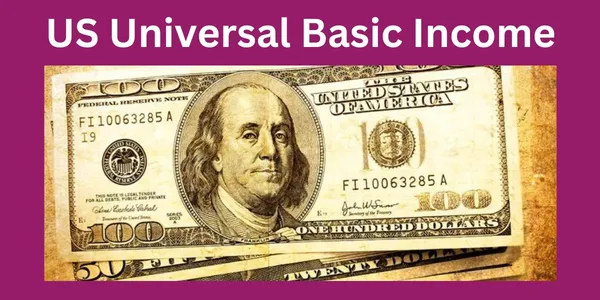Universal Basic Income (UBI) is an economic policy where the government provides all citizens with a regular, unconditional sum of money. The idea behind UBI is to ensure a basic standard of living, reduce poverty, and provide financial security, regardless of employment status or income level. In the United States, UBI has been a topic of growing interest, especially in light of economic disruptions caused by technological advancements, automation, and the COVID-19 pandemic.
What is Universal Basic Income?
Universal Basic Income is a type of social security program where all citizens receive a regular, unconditional payment from the government. This payment is intended to cover basic living expenses such as food, housing, and healthcare. UBI differs from other welfare programs in that it is not means-tested; everyone receives the same amount regardless of their income or employment status.
The Concept Behind UBI
The concept of UBI is rooted in the idea that every citizen has a right to a basic standard of living. Proponents argue that UBI can reduce poverty, provide a safety net for those in precarious employment, and give people the freedom to pursue education, creativity, or entrepreneurship without the constant pressure of financial insecurity.
Who Qualifies for UBI?
In theory, under a true UBI program, everyone qualifies, meaning every citizen or resident within the country would receive the payment, regardless of their income level, employment status, or wealth. However, how UBI is implemented can vary:
- Citizenship/Residency: In most UBI proposals, only citizens or legal residents of the country would qualify.
- Age: Some proposals suggest that only adults should receive UBI, while others argue for it to be extended to children as well.
- Geographic Location: Certain UBI programs might be piloted in specific regions or cities before being rolled out nationwide.
How Does UBI Work?
The mechanics of how UBI would work can vary depending on the design of the program. Here’s a basic outline of the potential structure:
- Regular Payments: Payments would be made regularly, typically monthly, directly into recipients’ bank accounts.
- Unconditional: There would be no requirements to receive UBI. This means that it would not depend on employment status, income level, or any other condition.
- Funding UBI: Funding UBI is one of the biggest challenges. Various proposals suggest different funding methods, including:
- Taxation: Higher taxes on wealth, income, or specific industries like technology and finance.
- Reallocation of Existing Welfare: Some suggest replacing existing welfare programs with UBI, thereby simplifying the system.
- Economic Dividends: Using profits from publicly-owned enterprises or natural resources (e.g., Alaska’s Permanent Fund Dividend).
- Impact on Other Benefits: In some models, UBI would replace existing welfare benefits, while in others, it would be an additional payment. The impact on current welfare programs would be a critical consideration.
Pros and Cons of UBI
Pros:
- Reduces Poverty: Provides a safety net for everyone, reducing extreme poverty.
- Economic Security: Helps people survive economic downturns, automation, and other disruptions.
- Encourages Creativity and Innovation: Frees people from the financial pressures that might prevent them from pursuing creative or entrepreneurial endeavors.
Cons:
- Cost: UBI would require significant government spending, and funding it could mean higher taxes or cuts to other programs.
- Inflation: Some economists argue that UBI could lead to inflation, eroding the purchasing power of the payments.
- Work Disincentive: Critics argue that UBI might discourage people from working, though evidence from pilot programs suggests this impact may be minimal.
Current UBI Experiments in the US
The U.S. has seen several UBI pilot programs, though none are at a national scale:
- Stockton, California: In 2019, Stockton launched a program providing $500 monthly payments to 125 residents. Early results showed improvements in participants’ financial stability and well-being.
- Y Combinator’s Trial: The startup accelerator Y Combinator has experimented with UBI in Oakland, California, providing unconditional payments to participants to study its impacts.
- Jackson, Mississippi: The Magnolia Mother’s Trust provides low-income African American mothers with $1,000 monthly payments, demonstrating positive outcomes in financial security and mental health.
The Future of UBI in the U.S.
While UBI has not yet been adopted at the national level, the idea has gained traction among policymakers, especially during economic crises. Proposals for UBI often emerge in discussions about the future of work, automation, and social welfare reform.
Conclusion
Universal Basic Income represents a bold rethinking of social welfare, aiming to provide a financial safety net for all citizens. While the idea has strong supporters and detractors, the growing interest in UBI, driven by economic uncertainty and technological change, suggests that it will continue to be a significant topic in discussions about the future of social policy in the United States.
FAQs
- Is UBI the same as welfare?
- No, UBI is different from traditional welfare programs because it is universal and unconditional, meaning everyone receives it regardless of their financial situation.
- How would UBI be funded in the U.S.?
- Funding proposals vary, but common suggestions include higher taxes on wealth and income, reallocating existing welfare funds, or using profits from public enterprises.
- Could UBI lead to inflation?
- Some economists argue that UBI could cause inflation, though pilot programs have not shown significant inflationary effects so far.
- Would UBI replace other social programs?
- It depends on the design of the program. Some proposals suggest replacing existing welfare programs with UBI, while others propose it as an additional benefit.
- Has UBI been tested in the U.S.?
- Yes, several pilot programs have been conducted in cities like Stockton, California, and Jackson, Mississippi, showing promising results in improving financial stability and well-being.










